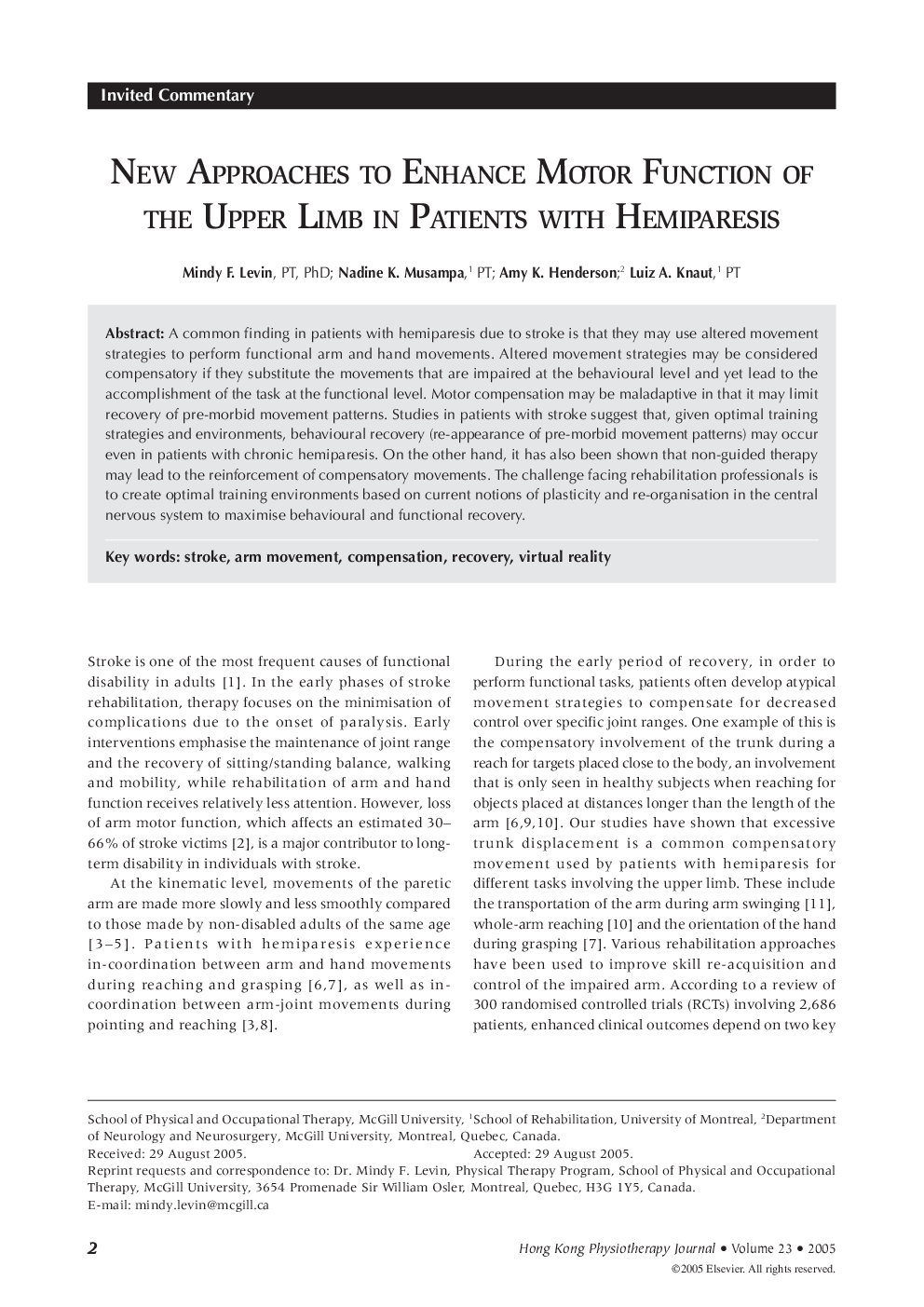| Article ID | Journal | Published Year | Pages | File Type |
|---|---|---|---|---|
| 9046571 | Hong Kong Physiotherapy Journal | 2005 | 4 Pages |
Abstract
A common finding in patients with hemiparesis due to stroke is that they may use altered movement strategies to perform functional arm and hand movements. Altered movement strategies may be considered compensatory if they substitute the movements that are impaired at the behavioural level and yet lead to the accomplishment of the task at the functional level. Motor compensation may be maladaptive in that it may limit recovery of pre-morbid movement patterns. Studies in patients with stroke suggest that, given optimal training strategies and environments, behavioural recovery (re-appearance of pre-morbid movement patterns) may occur even in patients with chronic hemiparesis. On the other hand, it has also been shown that non-guided therapy may lead to the reinforcement of compensatory movements. The challenge facing rehabilitation professionals is to create optimal training environments based on current notions of plasticity and re-organisation in the central nervous system to maximise behavioural and functional recovery.
Related Topics
Health Sciences
Nursing and Health Professions
Manual Therapy
Authors
Mindy F. PT, PhD, Nadine K. PT, Amy K. Henderson, Luiz A. PT,
